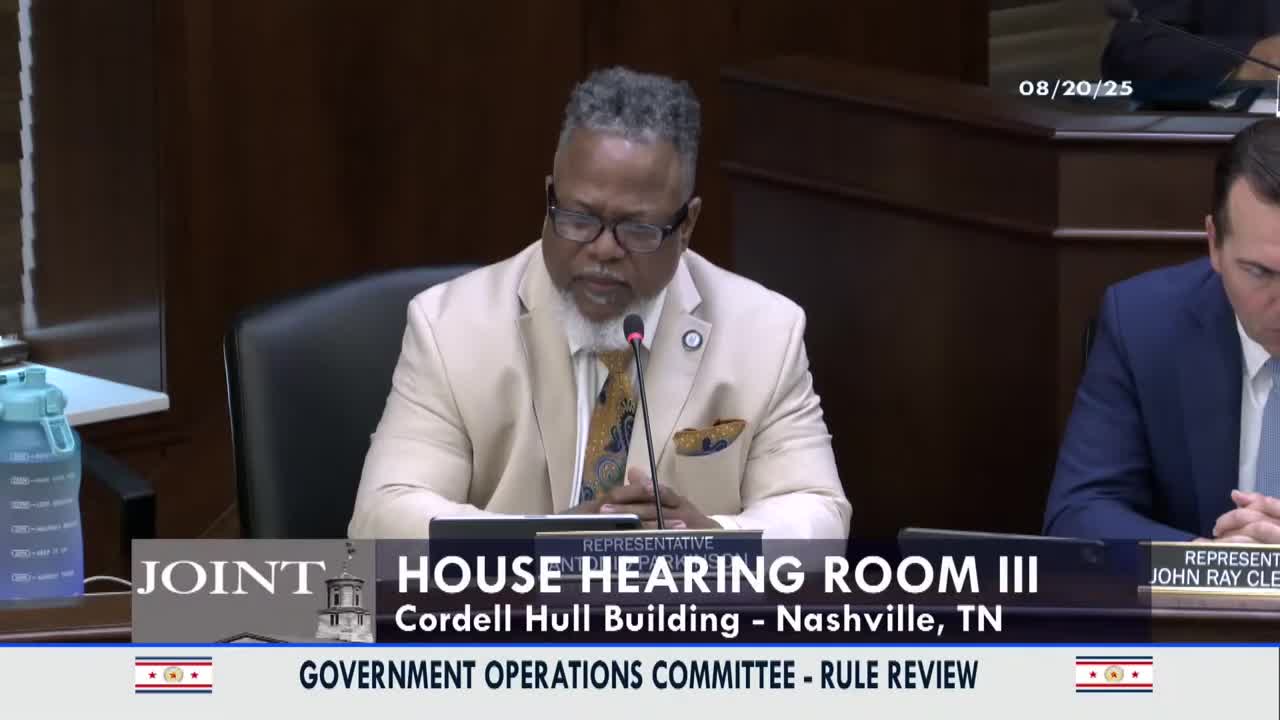Tennessee Education Department outlines new eligibility tracking for private school programs
August 21, 2025 | Government Operations - Rule Review, Joint, Committees, Legislative, Tennessee
Thanks to Scribe from Workplace AI , all articles about Tennessee are free for you to enjoy throughout 2025!

This article was created by AI using a video recording of the meeting. It summarizes the key points discussed, but for full details and context, please refer to the video of the full meeting. Link to Full Meeting
Another critical issue raised was the lack of regulations governing textbooks and curriculum for private institutions. It was clarified that the current rules do not impose restrictions on what private schools can teach, particularly concerning divisive content concepts. This means that schools, regardless of their categorization, can operate without state oversight on their curriculum, raising concerns about the potential for unregulated educational content.
The committee also discussed the parameters of the Educational Freedom Scholarship (EFS) program, particularly the cap on funding duration. Representatives sought clarity on how long students could receive financial support, with the consensus being that students are eligible for funding for a total of 13 years of schooling. However, this raised questions about students who may repeat grades, as they could potentially exhaust their funding before graduating.
Additionally, the meeting touched on the use of EFS funds for transportation services, with officials noting that while tuition and fees are the primary focus, families could use funds for approved transportation services, including rideshare options, if they meet specific criteria.
Concerns were also voiced regarding the statistical sampling method for assessing the program's effectiveness. Some committee members argued that a complete assessment of all recipients would provide more accurate data and insights into the program's impact.
As the committee concluded its discussions, it moved forward with a positive recommendation for the proposed rules, signaling a commitment to refining educational policies that directly affect Tennessee families. The outcomes of this meeting will play a crucial role in shaping the educational landscape in the state, particularly for private institutions and scholarship recipients.
Converted from Tennessee Joint Committee - Government Operations- Rule Review Aug 21, 2025 meeting on August 21, 2025
Link to Full Meeting
Comments
View full meeting
This article is based on a recent meeting—watch the full video and explore the complete transcript for deeper insights into the discussion.
View full meeting
